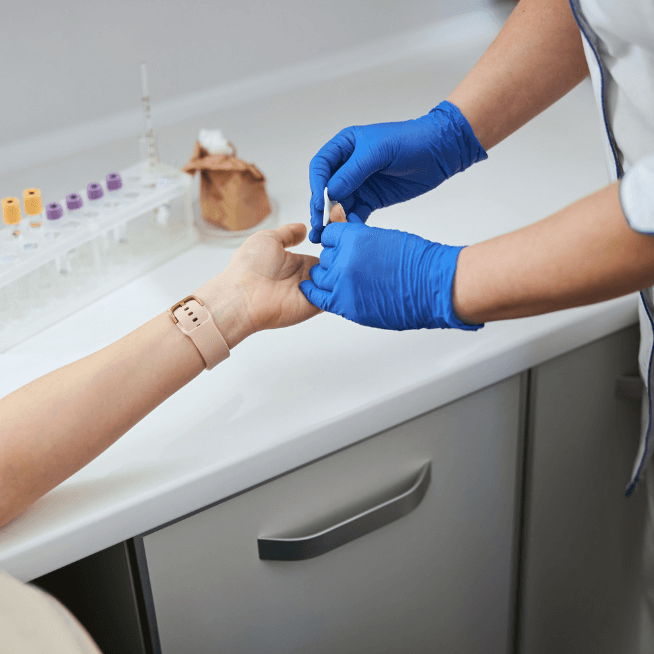Blood testing is a vital part of maintaining optimal health and identifying potential health issues a person may be unknowingly suffering from. Understanding how blood tests work can aid in reducing the fear attached to them, and also reveal how important they are. This article will provide detailed information on the type of blood tests available, how they are conducted, and what results might mean.
Types of Blood Tests
There are numerous types of blood tests available, each with a different purpose, the most common are:
- Full Blood Count (or Complete Blood Count): Measures the number of red, and white, blood cells, platelets, hemoglobin, hematocrit. This can help in identifying anemia, infections, and other blood-related disorders.
- Cholesterol Test: Provides a measure of the overall cholesterol in the blood, by calculating the Total Cholesterol to HDL Cholesterol (TC:HDL)
- Thyroid function Test: This test allows an insight into how the thyroid is functioning currently, by testing the 3 main hormones, Thyroid-stimulating hormones (TSH), Thyroxine (T4), Tri-iodothyronine (T3).
- Vitamin Blood Test: Measures a variety of vitamins to check the levels for any abnormalities.
- General Well-Being: Provides a screen of general vitality and wellness, includes a wide range of blood tests to get the best comprehensive overview of your health.
How does it work?
Blood samples are typically collected in two main ways, either through a finger-prick, or a venous blood sample.

Finger-prick sample
A small lancet is used to pierce the finger, which is usually painless, or at least feels like a sharp sting, resulting in drops of blood that are then collected for a sample. This method is particularly useful for testing blood from babies and children, by those who suffer from diabetes and need to monitor their glucose levels, or if a test is needed rapidly.
Venous Blood sample
Trained healthcare professionals use a needle to draw blood from a vein in the arm, this method of blood testing gives a clearer insight into all the biomarkers, cells, and proteins that are within your blood, it is ideally the best form of blood testing, as it can diagnose diabetes and any other health conditions.Does a blood test hurt?
While everyone has a different level of pain tolerance, the process of having a blood sample taken should only cause mild discomfort for most people.
Why do you need a blood test?
Blood tests are key for identifying and diagnosing a variety of health conditions. Early detection of any type of condition through blood testing can help significantly towards providing an effective treatment plan and preventing further complications. Additionally, blood tests are used to monitor the effectiveness of ongoing treatments, and other conditions, alongside:
- Checking hormone levels
- Monitoring the function of organs
- Keeping an eye of your metabolism

Interpreting your results
To interpret blood test result properly, a certain level of understanding is needed to know what is considered normal and abnormal for each component of a blood test. What is considered ‘normal’ can vary depending on factors such as age, gender, and medical history, it is important to review your results with a qualified healthcare professional, who can help you understand what the results mean for your health and give you advice on how to move forward.Results that fall outside of the normal range could indicate an underlying health issue, depending on what type of blood test is conducted, this could indicate conditions such as anaemia, infection, kidney or liver disease, or diabetes.
In house testing
Although most blood samples get sent off to a laboratory for testing, some places have an in house testing facility, these facilities allow medical professionals to perform tests on-site, instead of sending the sample off to an external laboratory.
Having access to an in-house testing facility can provide several benefits, our blood samples are tested on site in our rapid turnaround laboratory, through this you will receive:
- Faster results
- Cost-effectiveness
- Personalized Care
-
General well-being blood test
This wellbeing screen is a panel of multiple tests to give an indication of overall wellbeing. Monitoring can help indicate the body's response to changes such as the initiation of a new fitness regime or weight loss or gain plan.
View more details£90.00
View details -
Advanced iron deficiency (Anaemia) test
The advanced anaemia screen includes tests for haemoglobin levels and a full blood count. The results of these tests can show whether you have any signs of general health problems, as well as giving an indication of your overall blood health.
View more details£60.00
View details -
Allergy test
This FastPoc allergy test checks your blood for 20 common allergies, including ragweed, mugwort, grass, rye, birch, ficus/latex, cat dander, dog dander, dust mites, egg white, cow's milk and much more...
View more details£192.00
-
B12 Vitamin injections – Out of stock
B12 hydroxocobalamin vitamin injections
View more details£23.00
-
Bioma – Immucura Dendritic Cell Therapy Referral
Bioma is working with Immucura to deliver innovative cancer therapy.
View more details£0.00
View details -
Blood draw only
Blood draw only by a qualified phlebotomist.
View more details£35.00
View details
How long does a blood test take?
The time it takes to have a blood test, and to get the results, depends on several factors, including the type of test that is being performed, and whether the results can be tested in-house, or at an external laboratory. The majority of blood tests take a few minutes to carry out, and in general most blood tests are processed relatively quickly, with a large amount of results being available within a few hours to a day.
